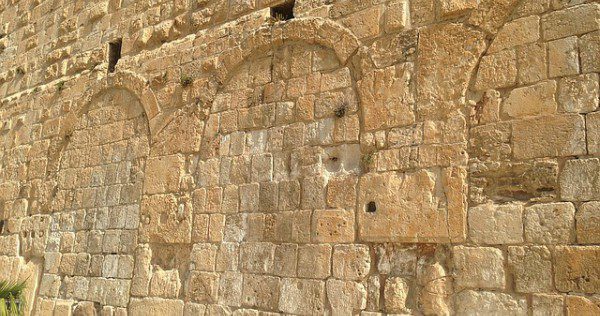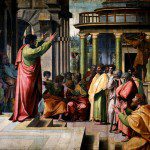 This is the first post in a series on the history of Israel.
This is the first post in a series on the history of Israel.
Why now? For two reasons. The most immediate is the new attention to Israeli-Palestinian negotiations, which President Trump wants to restart.
The other reason is that anti-Israel sentiment has heightened in recent years. More and more today’s Israel and its Zionist history are said to be oppressive and racist. Since the appeal is primarily to present practice that is rooted in history, to history we will turn.
I will start with a recent essay by two Israeli scholars who explore the relation between the Bible’s story of the occupation of Canaan under Joshua, and modern Zionism. Then beginning tomorrow I will take us through a new book by David Brog, Reclaiming Israel’s History: Roots, Rights, and the Struggle for Peace (Regency).
Here are highlights from the essay by Yonina Dor and Naomi De-Malach, two Bible and literature scholars who teach at a College of Education in Israel. The title is “Teaching Bible Stories Critically: ‘They Did Not Spare a Soul’–The Book of Joshua in an Israeli Secular Education Environment,” in Athalya Brenner and Gale Yee, eds., Joshua and Judges (Fortress, 2013), 39-68.
- The book of Joshua was once thought to be relevant to Zionism, but its plain meaning is now hard to accept. For it suggests at one level that an entire population was wiped out–man, woman, and child–because it was occupying land which God had promised to Jews and those gentiles who had joined themselves to Israel.
- Just as Talmudic rabbis justified the violence of Joshua, contemporary Israeli commentators on Joshua justify the violence wreaked on non-Jews “as required by the situation” (42).
- David Ben-Gurion placed the book of Joshua at the center of Zionism, saying Joshua was the true founder of the Jewish nation (42).
- The killings and expulsions carried out during the War of Independence (1948-49) drew their inspiration from the book of Joshua (43).
- The current scholarly consensus is that there is little historical basis for the story of Joshua, that instead there was very gradual infiltration of Canaan, and that the stories of Rahab at Jericho and the Gibeonite ruse suggest a history of compromise with the inhabitants. But the story of mass killing was written later, perhaps after the Exile, to motivate Jews not to mix with their idolatrous neighbors (46-47, 55-56).
The authors claim that the gruesome story of Joshua was an inspiration for Zionists. But they (the authors) never say what form that inspiration took. Most importantly, they never claim that Zionists had the intent of wiping out whole populations of Arabs, or that they wanted to expel all Arabs from the land. If there were some extremist Zionists with these goals, as there are such extremists in all histories of peoples returning to their lands, the authors never distinguish such extremists from those Zionists who wanted to live in peace alongside Arabs. As we will see, the true history of Zionism is dominated by the latter. We shall also see that Ben Gurion was among them.
Here is an analogy: there were Patriots during our own Revolution who attacked and sometimes killed fellow colonists (non-combatants) who did not support the break from England. Today we condemn these “extremist” Patriots, and distinguish them from the majority of patriots who did not like the “Loyalists” but supported a live-and-let-live policy toward them. To say that all Zionists supported the killing and removal of all Arabs–in the absence of historical evidence–is like saying that all American patriots wanted to kill the one-third of their fellow colonists who were Loyalists.











